Orgiya Pravednikov
Printed From: Progarchives.com
Category: Progressive Music Lounges
Forum Name: Interviews
Forum Description: Original interviews with Prog artists (which are exclusive to Prog Archives)
URL: http://www.progarchives.com/forum/forum_posts.asp?TID=70510
Printed Date: December 22 2024 at 22:23
Software Version: Web Wiz Forums 11.01 - http://www.webwizforums.com
Topic: Orgiya Pravednikov
Posted By: toroddfuglesteg
Subject: Orgiya Pravednikov
Date Posted: August 20 2010 at 08:49
|
Orgiya Pravednikov («Orgy of The Righteous») is Russian band, formed in 1999 by uniting the creative potentials of art-rock band ARTEL and rock-bard Sergey Kalugin. Along with Kalugin (who is responsible for lyrics, acoustic guitar and vocals), the band members are Alex Burkov (lead guitar), Yuri Ruslanov (flute, keyboard), Artemiy Bondarenko (bass) and Alexander Vetkhov (drums). I got in touch with the band for their story. --------------------------------------------------------------------
When
was Orgia Pravednikov formed and do you have any background from
other bands? The
band was formed late in 1998 as a temporary joint project of a rock
bard Sergey Kalugin and the band “Artel”, which had existed for
several years by that time. As early as the following year, it became
clear that we were together for long. In 1999, the band was named
“Orgia Pravednikov” (Orgy of the Righteous); therefore, it is
from 1999 that the
count of our joint years started. That is, “Orgia Pravednikov” is
a former “Artel” band, to which a rock bard Sergey Kalugin came
as a vocalist, acoustic guitarist and the author of the texts.
Which
bands were you influenced by? Each
member of the band has his own preferences in music. The flutist,
quite naturally,
could not avoid most powerful influence of “Jethro Tull”. The
drummer is passionate about “Dream Theater” and “Iron Maiden”.
Strange enough, but the bassist has been a devoted euro disco fan for
many years. The guitarist owed a lot to the early “Metallica”.
The vocalist rates high such dissonant projects as “Dead Can Dance”
and “AC/DC”. Director’s favorite bands (he is also a member of
our team) are “Marillion” and “Pain of Salvation”. All of us
like “King Crimson”, “Sepultura”, “Testament”,
“Rammstein”, “Queen”, “Doors”, “Led Zeppelin”,
“RHChP”, “Muse”, “Radiohead”, “My Chemical Romance”,
“RATHM”, “SOThD”, “Cure”, “Prodigy”... Should
nobody
stop
us,
the
list
will
be
much
longer.
Besides
rock, we are fairly knowledgeable about most diverse ethnic music,
classics, and liturgical music of various traditions. And, certainly,
we could not avoid influence of great Russian bands, the names of
which would hardly tell much to listeners in your country but the
influence of which on us can hardly be overstated. Those are such
bands as “Aquarium”, “Kino” (“Cinema”), “Grazhdanskaya
Oborona” (“Civil Defense”), “Alisa”, “Auktsyon”
(“Auction”). In addition, we have been strongly affected by the
stylistics of Russian urban romance – the most popular music genre
in Russia. In this respect, Russia resembles France where chanson
rather than rock is the most popular music.
To
start with; please give me your (long or brief) thoughts and
lowdowns on
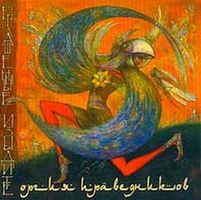 Оглашeнные
Изыдите / Oglashennye Izydite
(Catechumen, depart!) from 2000 That
was our first album,
recorded and re-recorded in the state of complete madness. We were
very young then; we did not know a lot of things, and we made most
ridiculous mistakes, but that record is full of young fervor and
audacity; it turned out to be very lively and unaffected. In our
opinion, that album has the most important feature – integrity.
Unity of the form and the substance; unity of quality of the
instruments, performance and re-recording – that is, the album is
harmonious, and that is what we and the listeners like it for. On the
other hand, when we hear it again now, we have to withdraw ourselves
as we are itching to re-play the stuff using our current
capabilities. But we are quite aware that this is nothing but a
demonic temptation, since the album has made it, and you can’t step
into the same river twice.
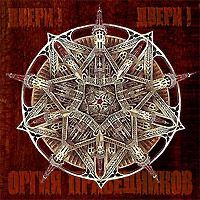 Двери!
Двери! / Dveri! Dveri! (The doors! The
doors!) from 2005 We
learnt a lot on that album. It took us three years to record it. It
comprises our ups and downs, our successes and our catastrophic
mistakes. The album is
patchy but very important and fancied in a sense. “The Doors!” is
the album that contains a number of key works having cleared for us
the way to the future. Such compositions as “Rex” and “Presence”
– they became our trademark for many years – were the first
fruits of our collective work. Before then, we had either adapted
songs already written by Sergey or made use of the stuff created by
“Artel” band.
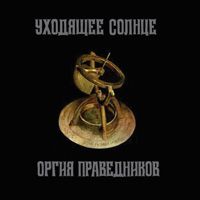 Уходящее
солнце / Uhodyashee Solntse (Fading
Sun) from 2007 The
album was recorded in other city (Saint Petersburg), in the own
studio
of our friend Vadim “Dess” Sergeev. It was recorded in a very
short time – it took us only two months – in the state of
complete immersion in the stuff (that is why we had to go to other
city so that day-to-day affairs did not distract us from creative
work). It was recorded “in shifts”: first, the drummer and the
bassist went “on a business trip”, then the guitarist, and then
the rest of the band. We worked easily and joyfully though the album
is, perhaps, the gloomiest of our albums. But its gloominess relates
to the topics of the songs; as for the work as such, it went on
surprisingly easy. We applied to that album all the skills we have
mastered working on “The Doors!”. That is, one can say that “The
Doors!” was our long and painful inhalation, whereas “Fading Sun”
was a short and happy exhalation. Therefore, the album again turned
out to be integer, clear and harmonious. For the first time we
managed to render in a form comprehensible to the listeners our
musical findings in the sphere of sound. We don’t want to speak of
the shortcomings; no doubt, there are some, and an attentive listener
would be able to catch them himself. And we’ll hope that there are
not too many attentive listeners of this kind in the world.
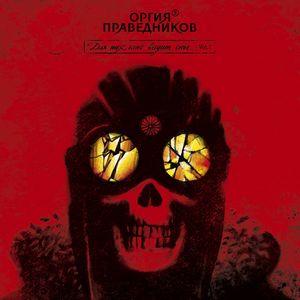 Для
тех, кто видит сны. Vol.1 / Dlya
teh, kto vidit sny, vol.1 (For Those Who See Dreams, Vol.1) from 2010 Our
latest
album,
issued
this
year,
is
our
source
of
pride.
We
recorded it in our own studio, named “Just Studio”, which had
been completed by the time we started to work on the album (and that
is one more source of pride). We
have
had
an
opportunity
to
work
with
a
lot
of
various
premises,
excellent
equipment
and
a
fairly
good
pool
of
instruments.
The work
took us half a year; we deliberately set such a time limit because in
a situation where nobody hastens you and you don’t have to pay for
studio hours the risk always exists to work to the point of full
exhaustion trying to bring each part to inconceivable perfection. We
know a man who has established his own studio and has been recording
there his album, for already more than 15 years. He once and again
finds something that does not suit him, and he once and again tries
to improve the stuff which, in fact, got dead long ago. It’s
certainly a kind of madness, and we wouldn’t like to get caught
into this trap. That is why we decided that we would record the album
on a tight schedule so as to retain freshness of performance and
perception, and those who failed to meet some deadlines have only
themselves to thank for. To our credit, nobody failed and all the
deadlines were met. No ideas remained unrealized in the album.
Perhaps, fault may be found to some performance nuances, but we are
not going to fall into unnecessary perfectionism. The album is
lively, seamless, joyful and energetic. We are satisfied with it to
95 percent, and we had never achieved such a level of
self-realization before. Largely, we owe such a success to the sound
engineer who re-recorded the album. His name is Yuri Ivanovich
Bogdanov (Magic Mastering Studio). We were simply delighted with his
re-recording and mastering work.
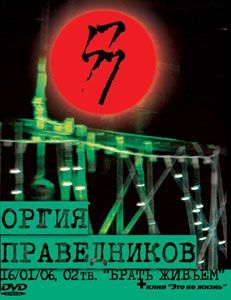 and
the two live videos Брать
живьем / Brat’ Zhivyem (Get Alive)
from 2006 In
Russia, there are actually no TV channels or radio stations
broadcasting independent rock music. The O2
satellite channel is a most rare exception. We were lucky enough to
have a live concert on the channel. The channel was very poor at the
time, and, therefore, the quality of video and audio recording leaves
a lot to be desired. At the time, however, we couldn’t even dream
of such a video record of the concert. We didn’t have money to hire
a motion picture group and to lease audio recording equipment to
release our own DVD. That is why we hurried over with releasing that
record when we had got it – so that to have at least such video
material at hand. Today watching that concert is certainly a kind of
fun, especially if you know that the record lacks a buss drum – by
no means unimportant instrument in rock music – because that
channel was inoperative during recording.
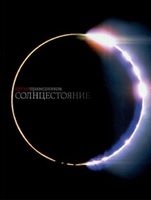 Солнцестояние
/ Solncestoyanie (Solstice) from 2008
It
was our second attempt
to release a DVD, and we were already in a position to afford audio
recording equipment and a motion picture group. The sound was
recorded all right, but a modest motion picture group, consisting of
three cameras only, did its work by no means perfectly. Nick Teplov,
who was assembling the material, got close to madness trying to
squeeze any dynamics from their cheerless footage. Well, we had what
we had, and we might not refuse the release, since it would have
meant bankruptcy. As a result, the released DVD had a good sound,
excellent styling and rather boring video sequence. But we were
contented because it was enormous step forward compared with “Get
Alive”. The reproaches from critics were very characteristic –
they recommended that we should pattern ourselves on “Iron Maiden”
where video recording was concerned. It didn’t even occur to them
that our financial capabilities are not comparable with those of the
world-richest band – which meant that in their perception we were
performing on the same ground with “Iron Maiden” and were losing
without scoring a point. You see, the very fact of being on that
ground is such a reward in itself that points don’t matter at all.
To sum it up, those crazy critics didn’t realize themselves what an
unthinkable compliment they gave us trying to bring us down.
What
are
your plans for the rest of this year and next year? We
are planning to repeat a tour over
Siberia, trying to cover more cities and towns, and also to go with
concerts to Western Europe. The task is a rather complicated one,
since the bands playing strictly within a specific style have their
own channels through which they go on tours to the West. Folk bands
have their own company, and so do thrash metal bands, electronic
bands, chansonniers, and those performing progressive in the spirit
of “Dream Theater”. But we have made a product not belonging to
any style; we are alone, and, therefore, there are no structures that
are ready to work with us. But we don’t hang our heads down.
Recently, we have received the first invitation to a bike fest in
Ireland in September. I don’t know what good can it do but well
begun is half done.
How
is the writing and creative processes in your band? That
is an ordinary creative process of a rock band. Somebody brings the
melody, and somebody brings the riff. When the musical basis is
ready, the text is written. The most important thing is to get
multiplication of ideas,
one by another, rather than their mechanical addition; we call it
“alchemical sublimation”, and, in fact, it’s nothing but
alchemy. Components are taken and put into the athanor, the fire of
Spirit is laid under it, and transmutation takes place. Ingenuous and
somewhat owlish melody transforms into a fantastically tragic
requiem. That is the moment of our reward; when it happens, our
feelings are at the level which many drug addicts are not able to
reach even under the impact of the strongest narcotic drug. I don’t
mean that it is always pleasant; sometimes it is painful and
horrible. Your soul is growing at the moment, becoming larger. You
may be not pleased with such a growth at all; in some cases the
process of separating from your old Self – from your old skin –
is very painful. In its essence, however, it’s happiness –
nothing else – because a one who stops developing would die and
nothing can be done about it.
How
would you describe your music and which
bands would you compare your music
with? Some
time ago, I gave a huge interview to a Brazilian Internet portal
Progshine.com,
devoted to progressive rock. The interview has not been released yet,
and I hope that Diego (our Brazilian friend having created the
portal) would not have a grouch on me if I cite an extract from that
interview here as a kind of advance advertisement. The point is that
two of the questions I answered in that interview are fully identical
to those you ask me now, and my answers were detailed to the maximum
possible extent; and it took me so much effort that it would be too a
trying ordeal for me to repeat all that once more. Besides, such an
advertisement will allow your readers to learn of the existence of
the Progshine.com portal – and my conviction is that good people in
our world shall know of each other. An extract from an interview to
the Progshine.com portal is given below as an answer to your
question:
It is not possible
to give a short answer to this seemingly simple question. “Orgy
Pravednikov”
(“Orgy
of The Righteous”) belongs to
generation of bands, formed about 10 years ago across the world. I
believe that this generation presented to the world something new,
some community unknown before to rock music. Besides, I think that
our generation has forever changed the image of rock music itself. To
be more exact, the myth peculiar to rock music.
I doubt whether this revolution is realized by music critics, since bands which appeared at that time are united not by unity of music origins and not by invention of the new musical style at all (as it was, for example, at appearance of punk or the New Wave of British Heavy Metal). To the contrary, the origins of these bands are absolutely different, and it can be said that each of these bands represents a new, unique style. In other words, if we consider the bands I am speaking about, from traditional musicological point of view, then you will fail to discover anything common between them. In order to understand where lies the communion I am speaking about, it will be necessary to take a much broader view. It is a question of unity of creative methods, unity of message, packed in shells, which are much different externally. But the shells are created by uniform rules, and just this unity of the external and the internal, unity of message and unity of the method of creation of music-poetic “body” for it make such different projects kin. In particular I am speaking about such bands as “Rammstein”, “Muse”, “My Chemical Romance”. These bands withstood a lot of reproaches in being hopelessly second, in being cunning speculators, successfully selling discoveries made not by them, critics spluttered, reciting samples, from which these artists “cribbed” their music, image, ideology. Nobody believed their prophetic pathos, except for stadiums filled with thousands of young hot-eyed people. And critics were puzzled: “How is it possible to believe this clownery?” I will permit myself to present a short journey into art theory. If Art Nouveau can be denoted with a trite allegory – character of a clown, sobbing under a laughing mask, if in postmodern art the situation is directly contrary – the mask is sobbing, and the clown is laughing under it – makes merry over credulous audience, then in creativity of the mentioned artists we come up against quite a new situation. It is a desperate sobbing under a mask which expresses sobbing. That’s why critics do not understand how it is possible to believe it. They have got used to the fact that if a mask sobs – it means that it laughs at them quietly. Suspicions of critics seem to explain behavior of these artists outside the the stage: they do not remind classic suicidal rock-heroes at all of the model which was glorified by idiot Oliver Stone in film “Doors”, having maligned (of course, from the best of motives; that’s why I say, that Stone is an idiot, but not a scoundrel) a great artist, wise, quiet and a very grown person Jim Morrison. And our heroes are merry, alive, they don’t act stars, they like to eat and drink and to guffaw about an idiotic joke, they can spend money wisely and so on. None of them is obviously going to shoot his head as Cobain did – and where is rock here? Where is fatum here? Where is sincerity? Where is unity of life and dramatic character, which we have got used to since the times of Hendrix and Joplin? Why don’t they want to die to amuse us, but instead of this they quietly sip beer? Critics don’t understand that rock grew up long ago and grew out of juvenile romanticism like children grow out of panties. We deal not with teen-age pimpled depression, but with apocalyptic despair of such intensity and such power, that an artist transmitting these states can afford peaceful philistine joys and courage. All this doesn’t matter. It is like playing badminton against the background of nuclear explosion – and what shall one do? Creep in horror to an air raid shelter and die there like an animal, in darkness and in closeness? It is unworthy. We have several minutes for a draught of beer, stroke of a racket and a smile. One must leave beautifully. We witness death of
the European civilization, that “Sunset
of Europe”,
about which Spengler wrote.
“There is a time for something biblical” – that is the essence
of the message of these so different artists. And the method they
apply is common. They combine everything the brightest, the most
rememberable and striking the eyes in that segment of the world
culture, which they are able to cover. This is a method of postmodern
collage – but under this collage spiritual fire of such rage is
lighted that at the output we obtain not forceless shorts of
fragments of times and cultures, but an indissoluble alloy.
It is alchemistry, it is “remelting of a corpse into a sword” (speaking language of Taoist mystics), it is art. Strictly speaking, it was such in the times of Giotto, Dante and Botticelli – but we have forgotten about it. Have a look at “Rammstein” – in their art they alloyed everything brightest, that existed in German culture. Simple melodism and sentimentality of German folk song and German metal in the spirit of “Ассеpt”, euro disco and leftist theater of Bertolt Brecht, electronic music of “Kraftwerk” type and German romanticists of the 19-th century, Rhine mystics and the most detestable in the world (and that’s why rememberable) German sado-maso-porn, the Third Reich and expressionism of the 1920-s, image of “a mad German scientist” – a cliché which became world and totalitarian rock in the manner of Yugoslavian “Laibach”, industrial from “Einstürzende Neubauten” and German fairy-tale with its Werwolves and Snow Whites …I could enumerate for hours and hours. In the same way “Muse” creates its mad cocktail out of Rachmaninoff, Sex Pistols, Queen, Nirvana, melodics of French chanson in the spirit of Charles Aznavour and sound-tracks of computer games, jumping from soul to Albéniz through classical blues and post-punk …I suggest to those who wish to analyze themselves what “My chemical Romance” creates. I think that it is even good that these incredibly complex cultural phenomena are perceived by everybody, except their fans, as ordinary and not the most interesting pop music. (Works of these musicians are so perfect that they seem to be very simple and down-home. Such effect in the past was reached only by band “Queen”, which played incredibly complicated and equally multi-compositional music, mixing Verdi and hard rock, jazz and disco, Nizhinskiy and Elvis in their creative work – and thereat their music was perceived very easily). In our world of triumphant banality, probably, only pretending to be a simple pop phenomenon, an authentic artist can get attention of mainstream audience. Music of these bands reminds me of hunting device of northern Indians, when whalebone plate was spiraled, wetted with water in freezing temperatures, and the obtained ice pellet was smeared with oil. A wolf or a fox swallowed it, the ice melted in their stomachs and the straightened plate killed the animal. And music of these bands was swallowed by many people as an ordinary mass culture, and it exploded inside them and changed the whole world perception. Diego, excuse me for such a long introduction, but only now I can answer the question, who we are, where we are from and where we are going. We are the same phenomenon, but born in Russia, on Russian ground. We are Russian “Rammstein”, Russian “Muse” - thereat our music has almost nothing in common with these bands, and, I think, it is clear now, why. Just as these bands, we combined everything the brightest, the most interesting, which our perception could reach, and – first of all – specifically Russian themes and motives. How
is the situation in Russia when it comes to gigs these days and how
is the whole music business there ? Do you export your albums to
other markets than the Russian market too? I
go on with citing my own interview to the Progshine.com
portal. In the extract below I deal with the prospects of my group
only up in its specific situation; however, one can discern the
general through the particular:
Everything is simple
– I’ve already said that in Russia we do not have radio stations
which could broadcast our music; there are no television channels,
music magazines and newspapers. Ok, I’ll explain in greater
details. There is one radio station in Moscow, which broadcasts
classic rock from Chuck Berry to Nirvana – but they don’t rotate
Russian bands in principle. There is a station broadcasting
alternative music and nu-metal, but also only of foreign origin. And
there are also two radio stations, broadcasting Russian bands – but
they don’t want us there, there is entertaining rock there, which
reminds of Britpop
but only with texts without punch. There is also cable television
channel A1 – it broadcasts strictly alternative music, we don’t
suit it stylistically. Mainly young people yell there with terrible
voices about unhappy love. There is cable television channel O2
– we were rotated there, but not much. That’s all, Diego. There
is NOTHING more. Well, except for MTV – and in Russia MTV has
assumed out-of-limit pathologic forms.
One of two music
magazines, where they could write about us, has just shut down,
having gone into bankruptcy. The second one is still standing, but
with difficulty, however – it is much less popular, and its
circulations are scrubby.
Only two labels in Russia at least somehow deal with rock music, at that mainly of entertaining type (tiny units, trying to deal with unpopular genres like grindcore are no object, we ourselves are much stronger than most of them), and we could not yet interest these labels. In Russia there is no system of “warm-up” – when labels mutually agree and gathering steam bands go to play before veteran ones. We would fain go as a warm-up, but firstly there are only 10 of these veteran bands all over the country, and we intercross only with two bands by sound (and if we consider message – then with one), and secondly we have no money to afford such a trip, you know, no label will pay for bus and petrol for us, and headliner will not and is not obliged to share fee with a warm-up band. Strictly speaking – in Russia there is no independent rock process at all, it is still not formed. There are many simulacra, bumped-up external imitations such as “label”, “producer”, “postproduction” – but there is nothing behind these words. In each city of the country there is one smoky rock club all in muck, with the capacity of 150 – 300 people, with awful broken equipment, with an owner, got mad of necessity to grease the hands of officials, militia, tax authority, fire engineering service (or else they will be shut up). And we manage sometimes to come to this club, for joy of our young fans – because older people will not go to this club even specially to see us. And we can’t yet get in a large concert hall next to this club – support of a label is required for this purpose. So, the prospects are the following: since there are only two labels, then we will either finally be with one of them or will gradually get ourselves such strength that we’ll be able to agree to arrange everything we want for ourselves – we followed this way, strictly speaking, so far, and not without success. We have several large open airs, but only bands, which could get fixed rotations at one of the two radio stations broadcasting Russian rock, are permitted to participate in them. In other words, these are either bands of the “first wave” of Russian rock, which got popularity in the late eighties – in the early nineties (in those times rock for a short time was permitted on the television screens as a symbol of freedom, its protest energy was used for dismantling of the soviet system. As soon as the system failed and the money was stolen – stability to protect peace of the new-made billionaires was required. From the middle of the nineties rock on television is a forbidden genre). Or these are bands playing pop rock – purely entertaining, light music. Such bands are readily rotated; their works are non-contentious and can’t induce problems to labels. We applied to participate in these festivals many times, until we were told in clear: “Your music is very interesting. We don’t need an interesting music”. As
regards the second part of your question, I can say that the only way
of buying our disk in the West is for the time being the following:
you are to enter our website orgia.ru and order the disk in the “Buy
a Disk” section, or to write us to http://[email protected] - .
Our delivery service operates perfectly. Unfortunately, there are no
other ways of distributing our products in the world. We have no
label behind us that could have deal with that.
What
are
your five favourite Russian albums of all times? I
can mention a number of albums of great Russian groups such as
“Aquarium”
or “Grazhdanskaya Oborona”; the point is, however, that the music
of our rock musicians – even the best of them – is in most cases
inferior to their poetic gift. As a parallel, a great French singer
Renaud may be mentioned: if you don’t know French, you are not able
to understand where his charm and the greatness of his works lie in
because their musical component is at best pleasant and no more. That
is the point: if a Western listener puts on his player a disk adored
in Russia, say, “Ravnodenstvie” (“Equinox”) by “Aquarium”
or “Gruppa Krovi” (“Blood Group”) by “Kino”, he may get
confused: what is in that music that causes so intensive emotions
with those Russians? Therefore, we’ll follow such a way: first,
we’ll name a couple of albums by the musicians who, perhaps, don’t
belong to the highest grade if to take the aggregate of music and
lyrics, but whose purely musical findings are really interesting even
for a person not understanding the text. You may be certain that
these musicians are all right as well where the lyrics are concerned.
So, try to listen to such albums as “Nizhnyaya Tundra” (“Lower
Tundra”) by “Va-Bank”, “Vodorosl” (“Seaweed”) by a
singer Inna Zhelannaya, ‘Karuselniy Ded” (“Karousel
Grandfather”) by a guitarist Ivan Smirnov (this is instrumental
music). Then, you can proceed to the albums that are rated as great
in Russia but are more difficult to understand for the reasons I have
mentioned above: ‘Ravnodenstvie”, “Russkiy Albom” (“Russian
Album”), “Loshad Belaya” (“White Horse”) by “Aquarium”;
“Sto Let Odinochestva” (“Hundred Years of Solitude”),
“Nevynosimaya Legkost Bytiya” (“Unbearable Lightness of
Being”), “Zachem Snyatsya Sny” (“What Do We See Dreams For”)
by “Grazhdanskaya Oborona”; “Religiya Serdtsa” (“Heart
Religion”) by the “Instruktsiya Po Vyzhivaniyu” (“Survival
Manual”) band (we don’t recommend you even to try to listen to
that album, since you may decide that we are goofing on you); “Gruppa
Krovi”, “Zvezda Po Imeni Solntse” (“The Star Named the Sun”),
‘Cherniy Albom” (“Black Album”) by “Kino”;
“Deklassirovannym Elementam” (“To Declassed Elements”) by the
band “Yanka i Velikie Oktyabri” (“Yanka and Great Octobers”)
(you’d better not try to listen to this band as well); “Shabash”
(Sabbath) and “Jazz” by “Alisa”; “Aktrisa Vesna” (“Spring
Actress”) by DDT; and “Ptitsa” (“Bird”) by “Auktsyon”.
We
also cannot but mention an album of a group who are now living in a
neighboring state, the Ukraine, and singing in the Ukrainian
language, but we have
considered them since the Soviet times belonging to our folk, and we
don’t want to abandon it. We mean the “Vopli Vidoplyasova”
(“Vidoplyasov’s Screams”) band with their great album “Musika”
(“Music”); the music of the album is really smashing, and you’ll
certainly like it!
Anything
you want to add to this interview? I
am somewhat embarrassed to report it to you, but the point is that
God exists. I don’t know what you would do with that surprising
information.
Thank you to the guy in Orgiya Pravednikov for this interview Their PA profile is http://www.progarchives.com/artist.asp?id=4039 - and their homepage is http://orgia.ru/ - |
